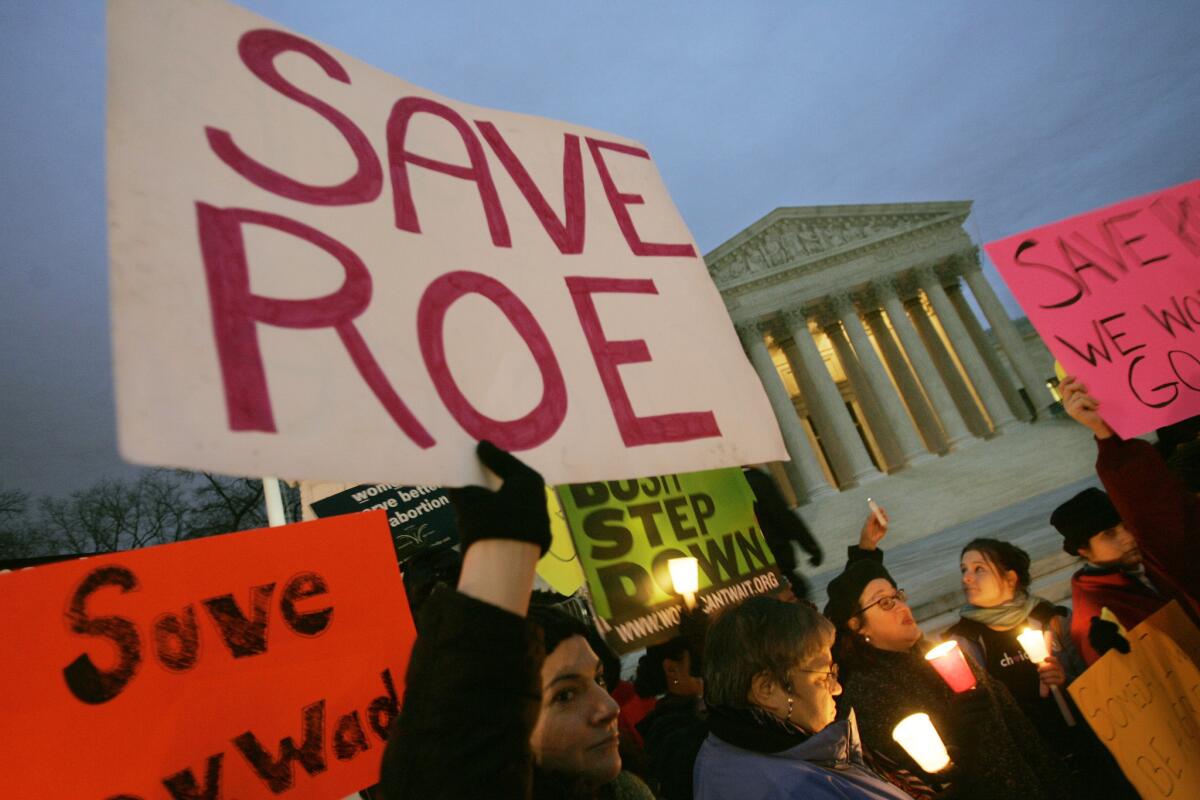Roe vs. Wade turns 40

- Share via
Forty years ago Tuesday, the Supreme Court ruled that women had a constitutional right to an abortion. This one sweeping decision transformed abortion from what was often a secret, illicit and dangerous act, sometimes crudely self-inflicted, into a generally legal and safe procedure. But it also turned abortion, always an emotional issue, into one of society’s most divisive.
Unlike many landmark Supreme Court cases that have become accepted parts of our culture — such as Brown vs. Board of Education, which declared school segregation unconstitutional, or Loving vs. Virginia, which overturned state bans on interracial marriage — Roe did not lead to a clear national consensus on abortion.
A recent Pew Research Center survey found that although most Americans support the court’s decision, 29% said they would like to see Roe overturned. Nearly half of Americans say they believe abortion is morally wrong. Those positions have changed little in recent decades.
Sadly, the Roe decision remains under attack in many quarters from politicians, conservative religious groups and others. Fueled by their belief that abortion is murder, they are intent on taking away or substantially curtailing the right to choose, even though the Supreme Court has correctly concluded that abortion is a private matter.
Today, most states have some kind of law that affects access to abortion. In 38 states, for instance, parents must be notified or give consent before a minor may have an abortion. In 35 states, a woman must receive counseling before an abortion is performed, and 26 of those states require a woman to wait a specific amount of time, usually
24 hours, between counseling and the procedure, according to the Guttmacher Institute, an abortion rights research organization. A couple of states require that an ultrasound be done and shown to the woman, even though it is not medically necessary. Several states have sought to defund Planned Parenthood, the best known of the nation’s abortion providers.
In some cases, state restrictions have been declared unconstitutional by courts as violations of Roe vs. Wade. But even where they have not, they often seem to be efforts to drive a wedge into the debate or to make it increasingly onerous to get an abortion, particularly for low-income women.
We look forward to the day when a woman’s constitutional right to make such a fundamental decision about her own body as whether or not to have a child is as clearly settled and calmly accepted as the right of black and white children to attend school together or the right of people of all races to marry one another. Until then, courts and legislatures must be vigilant in assuring that a woman’s right to a safe and legal abortion is neither thwarted nor denied.
More to Read
A cure for the common opinion
Get thought-provoking perspectives with our weekly newsletter.
You may occasionally receive promotional content from the Los Angeles Times.









